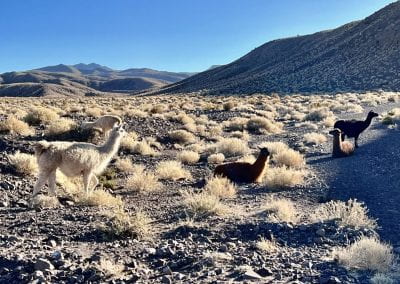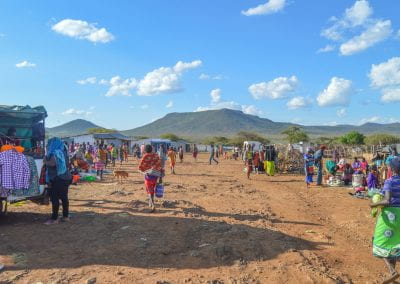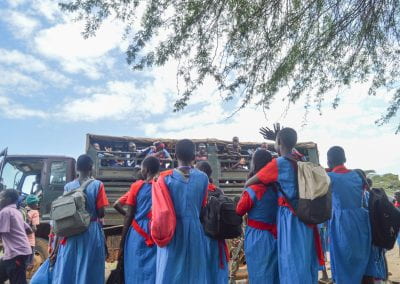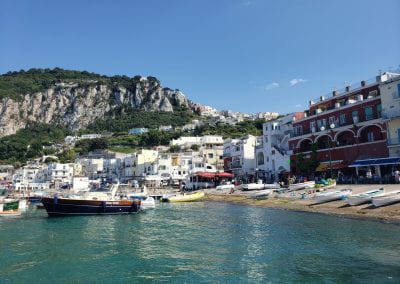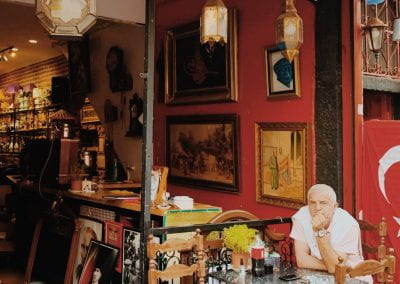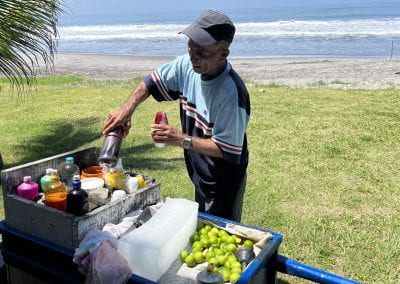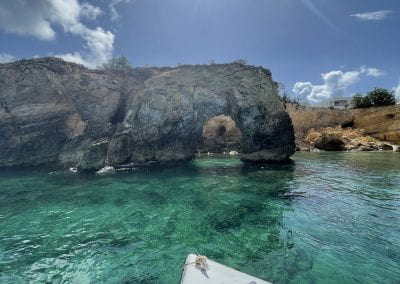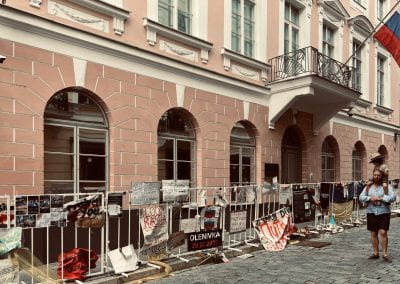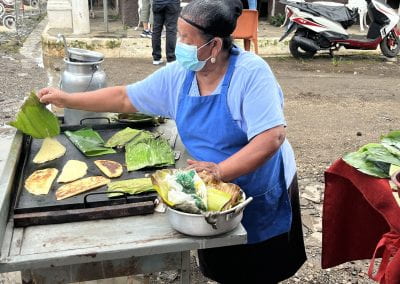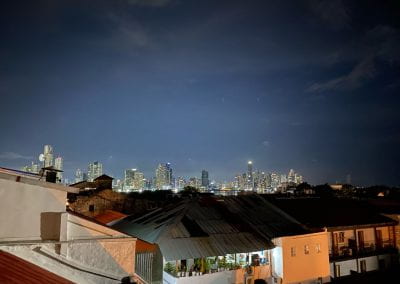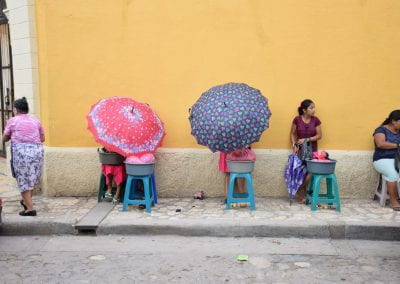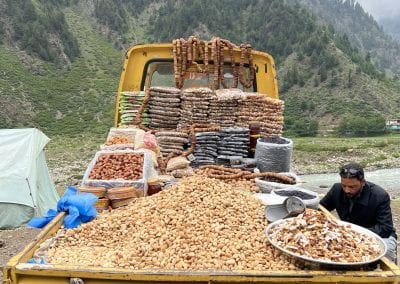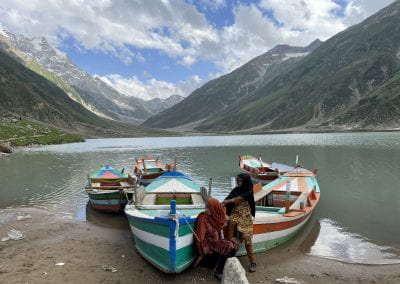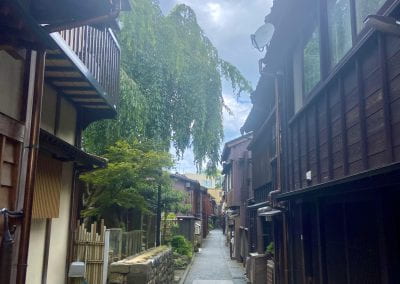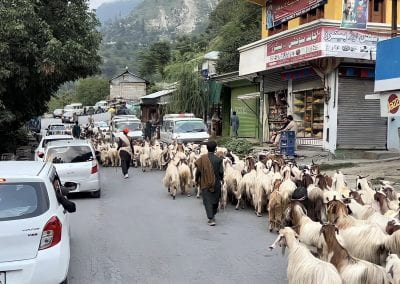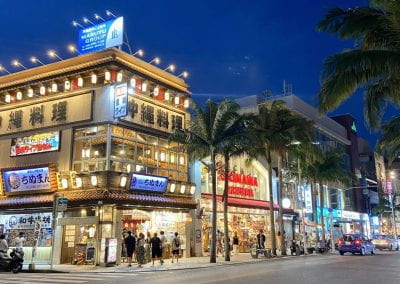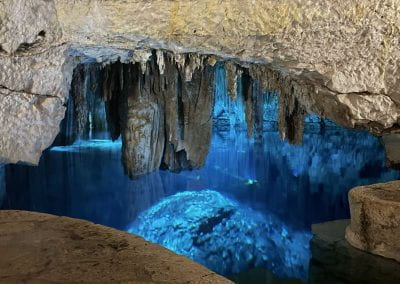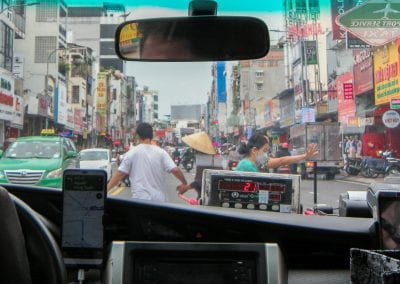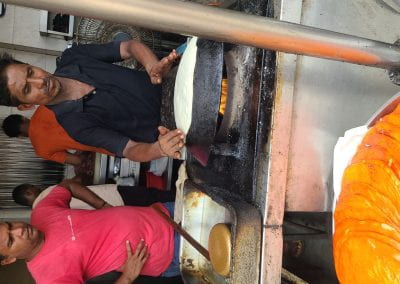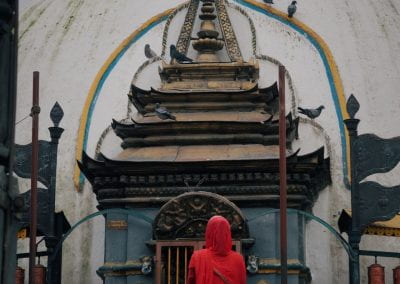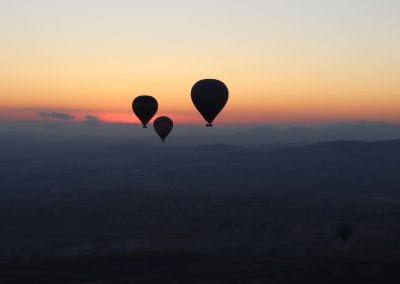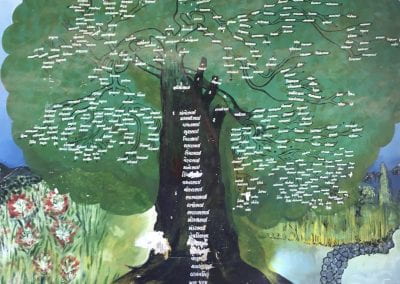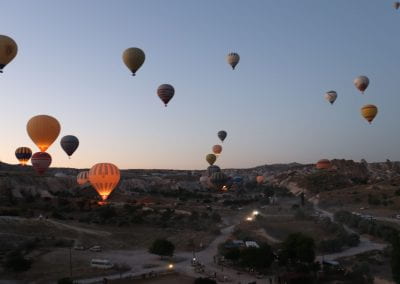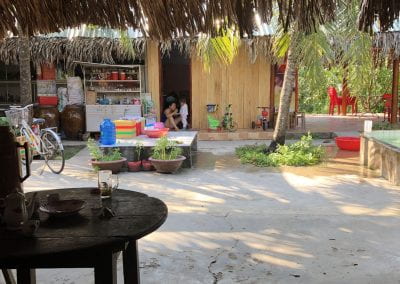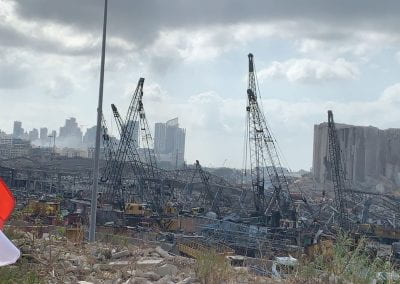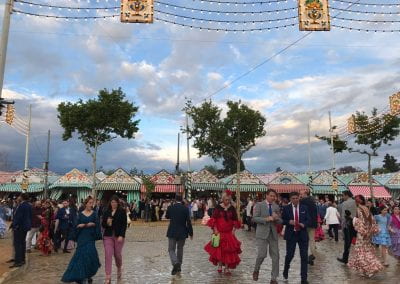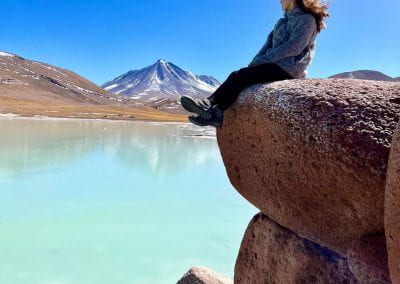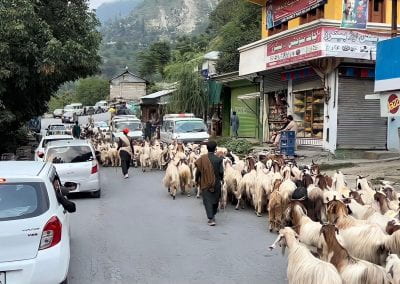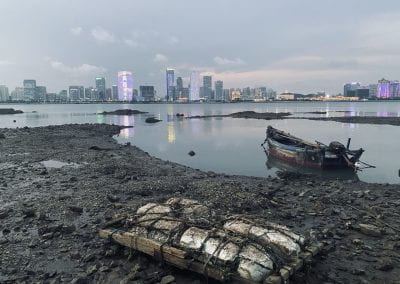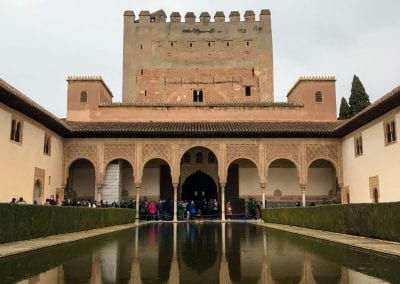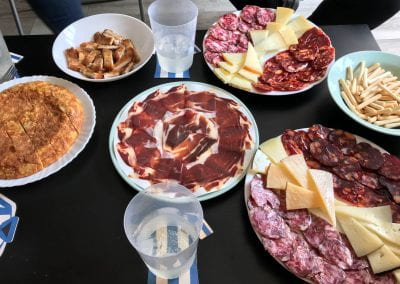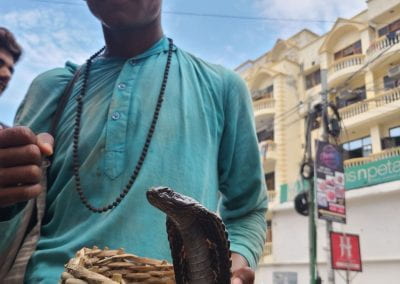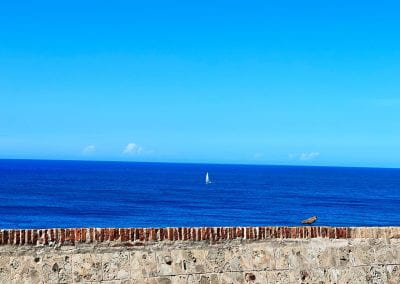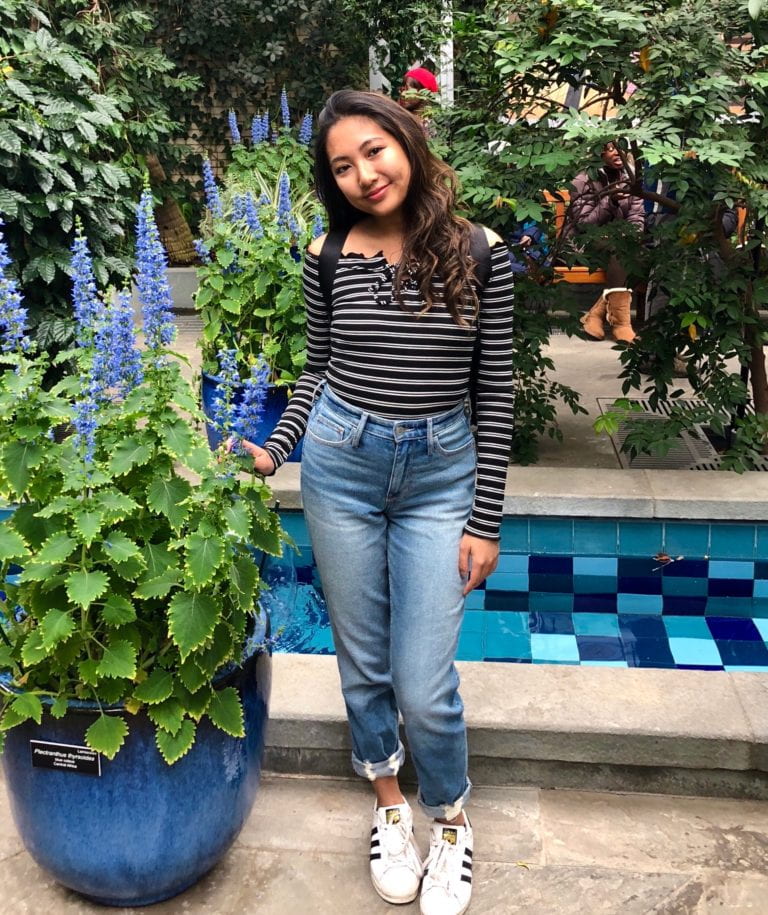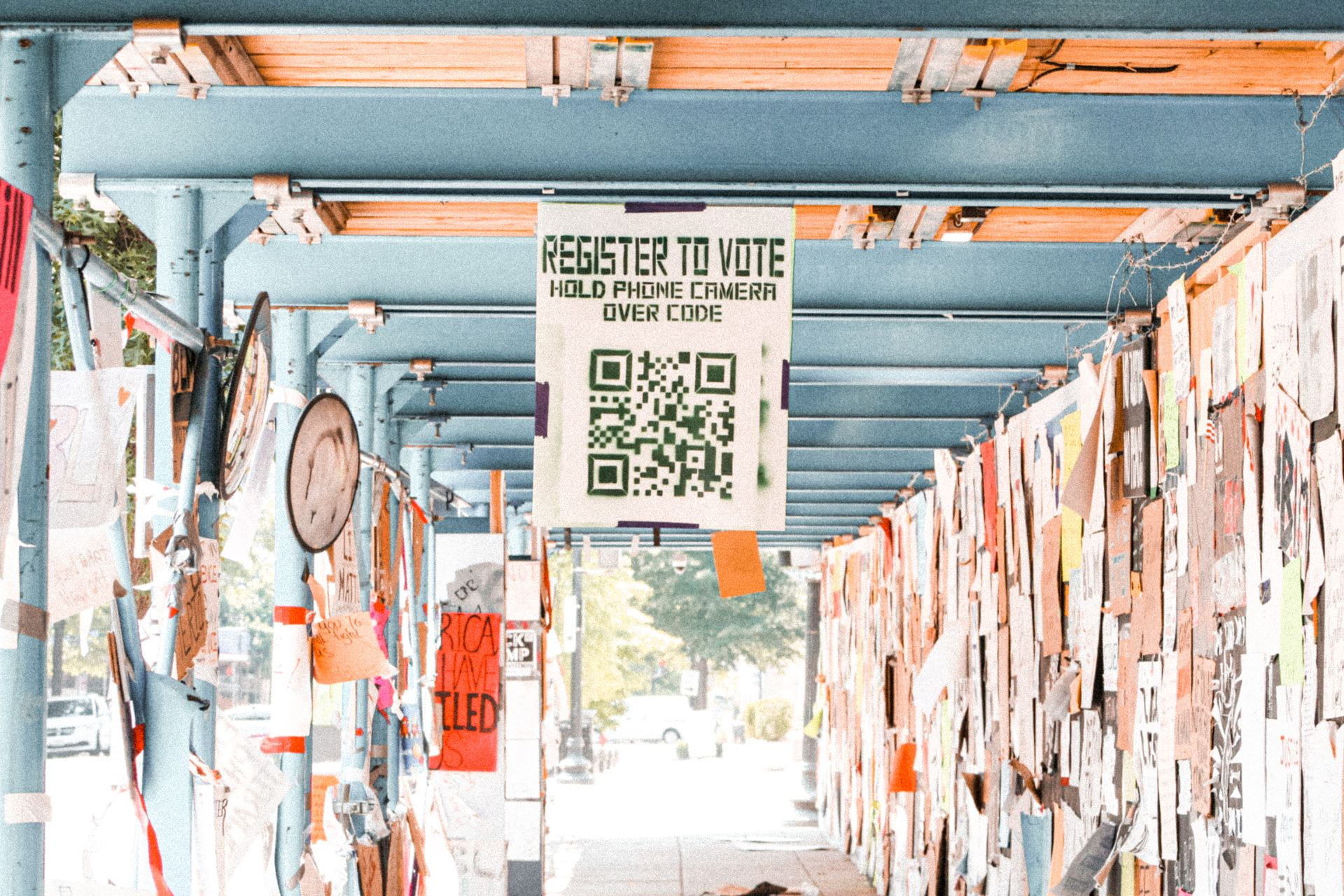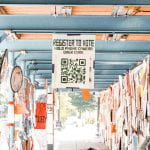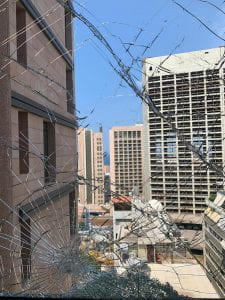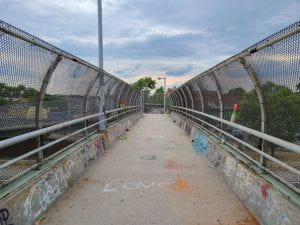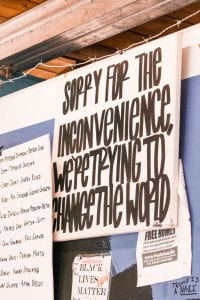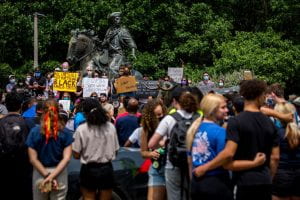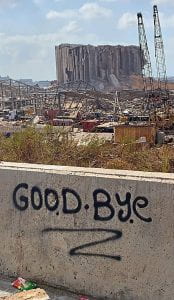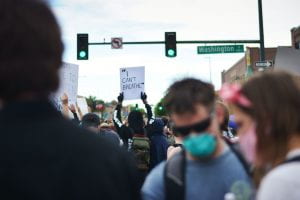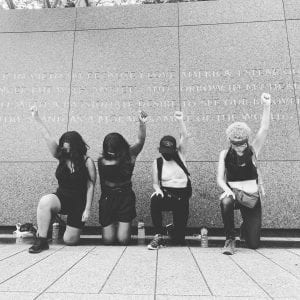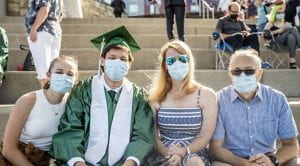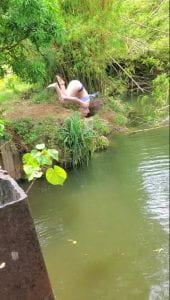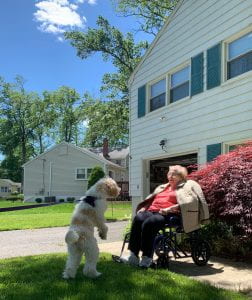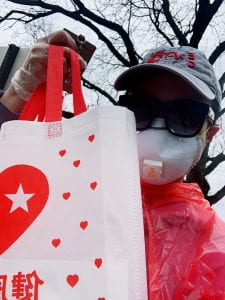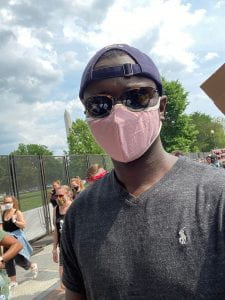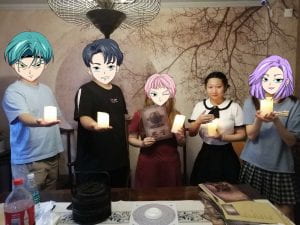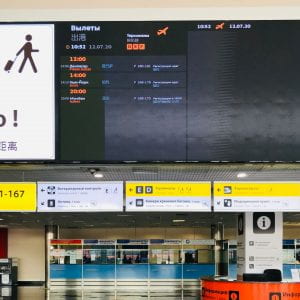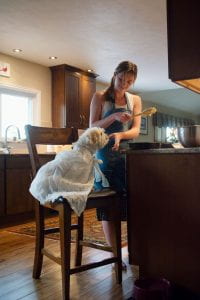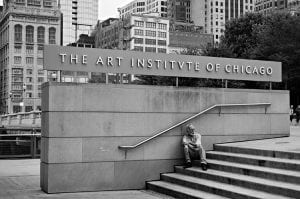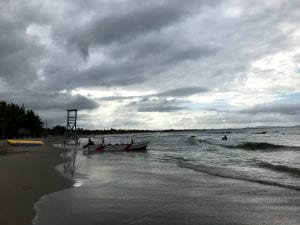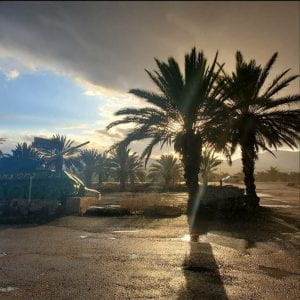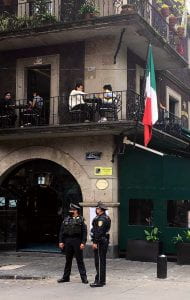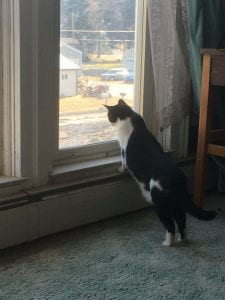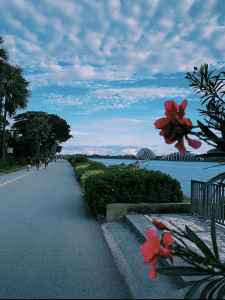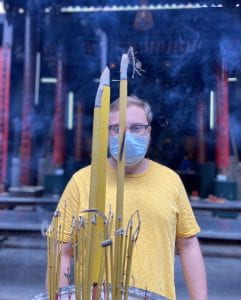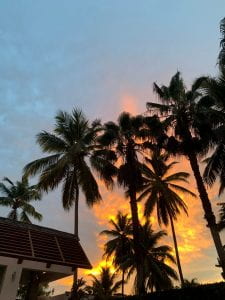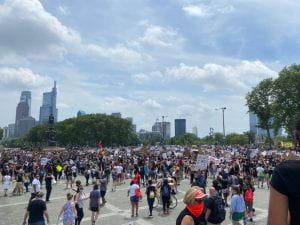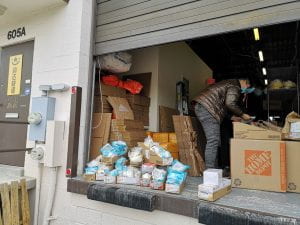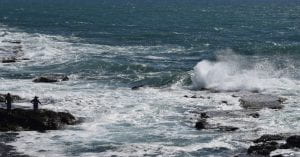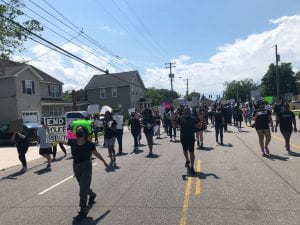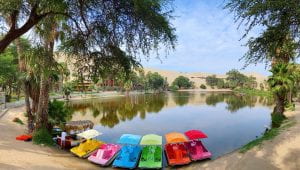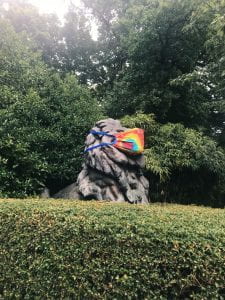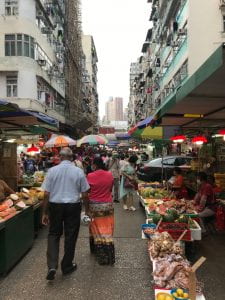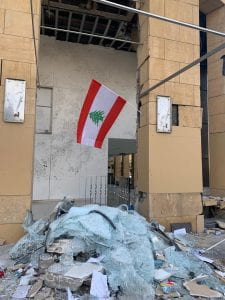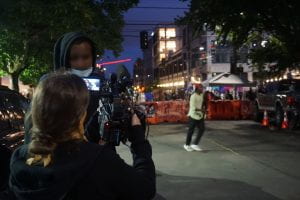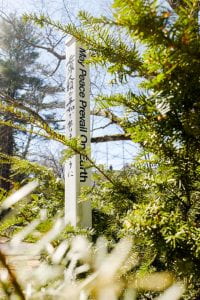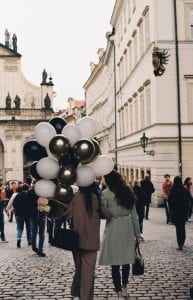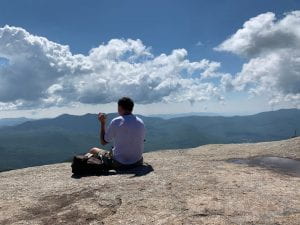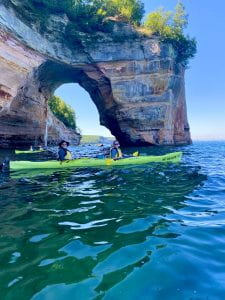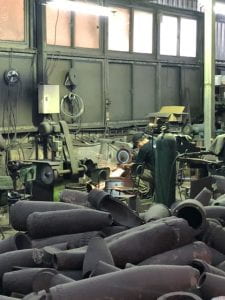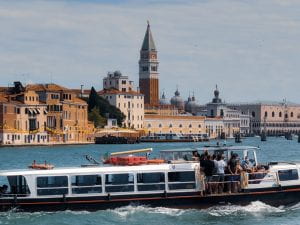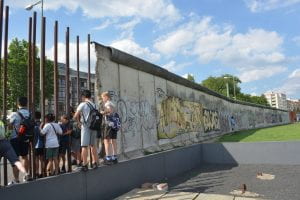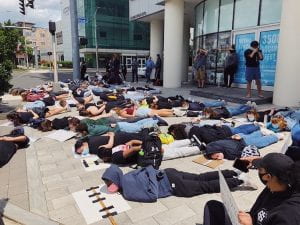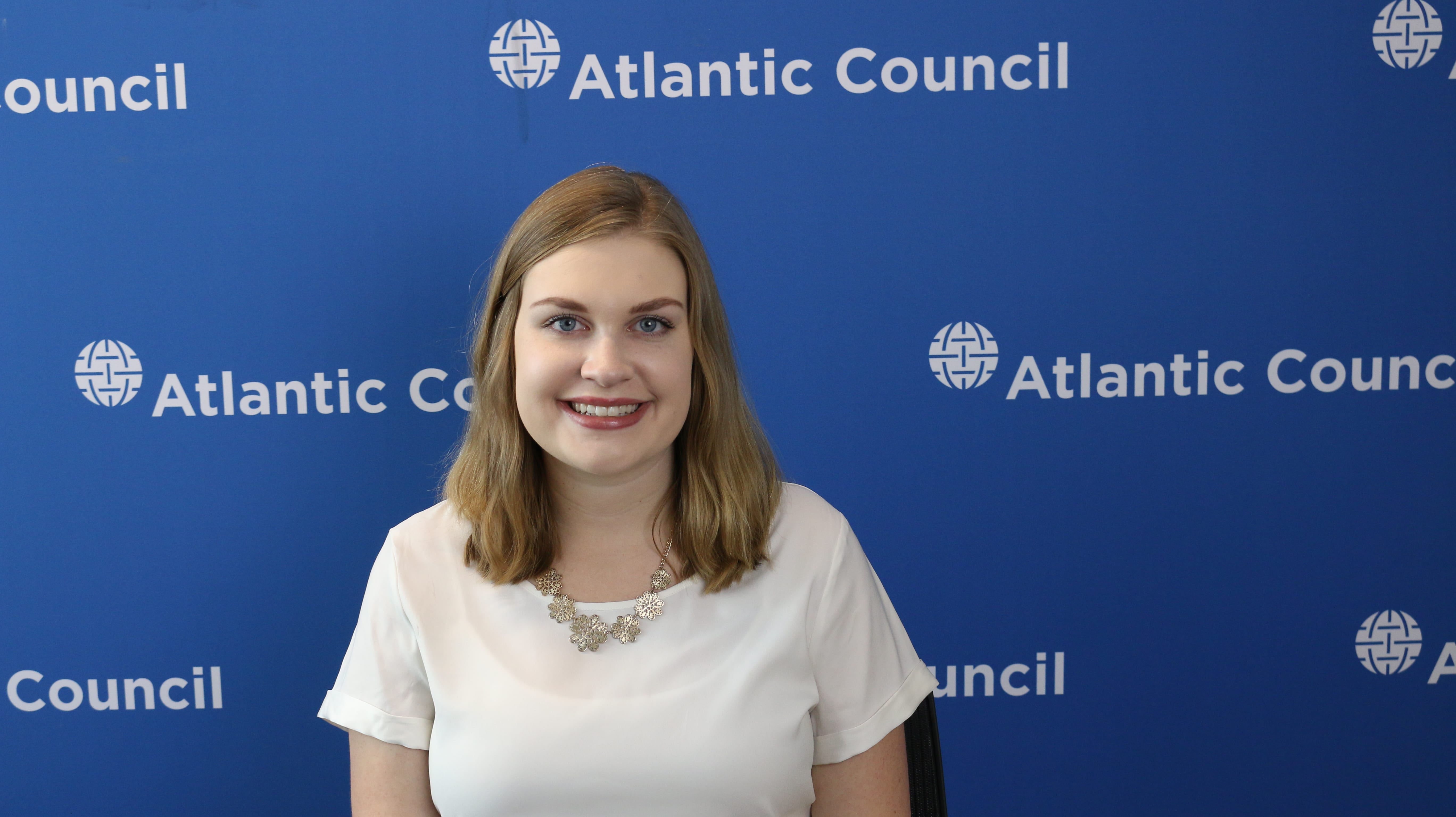GW Senior Takes Part in COP26 Conference, Seeks to Be Driver of Change

Growing up in an affluent New Jersey suburb of New York City, George Washington University senior Francesca Edralin believes many in the U.S. are in a bubble regarding climate change because they don’t necessarily see the effects of it on a day-to-day basis. But with family roots from the Philippines, a country among the most vulnerable to climate change, she has seen life outside the bubble and maintains there is a disconnect between those directly encountering the climate crisis and those making policy decisions surrounding it.
Her experiences at November’s United Nations Climate Change Conference (COP26) in Glasgow, Scotland, further confirmed that.
Attending as a Storytelling Fellow for Planet Forward, the international affairs major and journalism/mass communications and sustainability minor spent much of her three days chronicling the event from as many viewpoints as possible. The Blue Zone, she said, was where negotiations and delegation meetings took place. The Green Zone was open to the public and more educational. She also documented what was going on outside the conference, as passionate activists lined the streets with signs and chants to make their voices heard. But she feels they fell on too many deaf ears.
Based on her observations, she could sense those in the Blue Zone—the policymakers—were most interested in their own organizations and governments, while those demanding for change—many of whom were younger citizens—were left outside, a scene she knows all too well.
“Not everyone has a seat at the table,” Ms. Edralin said. ““While there is a space and growing movement with young people voicing their opinions, I see that a lot of times they don’t have access to the frameworks.”
She was encouraged, however, by a speech from Georgia Senator Jon Ossoff, whom she’d later converse with one-on-one. Sen. Ossoff’s speech resonated with her because of his warning to others in the Blue Zone that young people will face the consequences and be the judges of the action, or lack thereof, taken now.
“It gives me hope that people like him in the Senate are pushing the climate conversation forward,” she said.
Ms. Edralin will return to Washington, D.C., this spring from Denmark, where she has been studying during the fall semester. After graduation, she is interested in bringing together the private sector and environmental nonprofits, hoping to hold banks and businesses more accountable for environmental shortcomings. Her experiences at and through GW will be valuable assets as she seeks to become a driver of change and live up to the bargain others before her have failed to do—leave the world a better place than she found it.
“I know communications will play a big part in whatever I do,” Ms. Edralin said. “I can see issues from all different sides, and I want to be a person who can bridge these gaps. Climate change is an issue that needs a lot more connecting.”
Photo Contest Gallery 2020: From Pandemic to Protest
From Pandemic to Protest
First Place
Honorable Mentions
Gallery
How I Spent My Summer

An Interview with Margaret Meiman, ESIA BA ’20
We caught up with Elliott School junior Maggie Meiman at the start of the semester to chat about her summer internship at the Atlantic Council, a major think tank focused on strengthening the transatlantic alliance. A New Jersey native, Maggie honed her critical-thinking skills debating global issues as a member of her high-school debate team. At the Elliott School, she is a double major in international affairs and economics. When not in class or writing papers, she is often engaged in service work with members of her professional foreign-service sorority, Delta Phi Epsilon. A stipend from GW’s Knowledge in Action Career Internship Fund made it possible for Maggie to accept this prestigious internship.
Tell us a bit about your work as a summer intern at the Atlantic Council.
I worked in the Atlantic Council’s Eurasia Center, which focuses on democratization, economic development, and disinformation within the post-Soviet space.
What issues did you work on?
My research focused heavily on Kremlin-led disinformation and misinformation in various countries, as well as the legal remedies countries use to combat them. For example, I explored how Estonia’s situation differs from scenarios in Germany and Moldova.
Why was the Atlantic Council internship a good fit for you?
The internship combined my regional interest in Europe and Eurasia with my focus on economics.
A highlight from your experience?
An off-the-record roundtable we held with the former Russian Prime Minister, Mikhail Kasyanov. This event was a chance for top Russia experts in D.C. to gather for a frank conversation about the current state of affairs in Russia, with an emphasis on predictions for the future.
A key takeaway?
I expanded my horizons, literally! I learned so much about Europe and Eurasia – especially about Russia, Moldova, and Georgia – that I just declared an additional concentration in this region. And I plan to use my enhanced regional knowledge and research skills when it comes time to write a thesis next year.
A point of pride from your internship?
My piece on the long term effects of the 2008 Russian invasion of Georgia was published on the Atlantic Council’s blog, the New Atlanticist.


